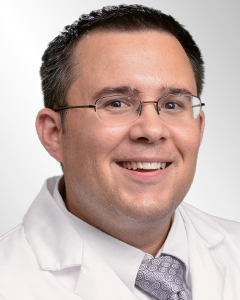5 Tips to Prevent Health Problems in Your 20s
In your 20s, you likely feel invincible. Generally, most 20-somethings should be healthy, active and not have to deal with chronic conditions like diabetes, cancer, high blood pressure or heart disease.
But even if you’re the picture of perfect health, prevention will go a long way toward keeping you healthy. You just have to practice the right habits — and stick with them long term. If, like all of us, you’d like to avoid health problems as you age, here’s some advice for getting off on the right foot and staying healthy in your 20s:
Get Regular Exercise — With Weights
One of the best ways to stay fit in your 20s and beyond is to do weight-bearing exercises like running and strength-training that can strengthen your spinal muscles and increase bone density. According to national guidelines, adults should do at least two days a week of moderate or high intensity muscle-strengthening activities.
If you don’t have time to hit the gym, dedicate yourself to 30 minutes of strength-training at home a few times a week. All you need is a resistance band, a set of weights — or even your own bodyweight — to build muscle and prevent bone loss.
Find a Good Doctor
Unfortunately, many people don’t visit a doctor until something is wrong. However, preventative care is an important part of staying healthy.
If you don’t have a doctor, go online, do some research and Find a Doctor locally. Start out by finding a primary care doctor or family physician and then search for specialist care, such as an OB-GYN, dermatologist or urologist.
Eat More Vegetables, Less Sugar and Smaller Portions
An apple a day keeps the doctor away — it’s an age-old saying, but it’s still true. If processed foods are staples in your diet, start small by replacing at least one serving a day with a serving of whole foods, like fruits, vegetables and whole grains.
Overconsumption of sugar also is a big issue, especially because it’s hidden in foods you wouldn’t expect (did you know ketchup and some savory seasonings contain sugar?) There are several ways you can cut back on sugar, including replacing soft drinks and artificial fruit juices with water or sugar from natural sources like fruit, eating protein for breakfast instead of sugary breakfast cereals and cutting back on processed desserts and candies.
You also can curb your sugar intake by cooking more at home. This also will help with portion control because you’ll be able to monitor what goes into your food and how much of it you put on your plate.
Practice Safe Driving
You’ve probably heard this advice countless times — wear your seatbelt. Recent studies have shown more millennials drive distracted compared to other generations. About 17 percent of millennials text or email while driving versus 4 percent of non-millennials. Eighteen percent even said they couldn’t resist the urge to send or check online messages while driving.
This is a huge problem. Distracted driving killed nearly 3,500 in 2015, according to the most recent data available from the National Highway Transportation Safety Administration (NHTSA). Highway deaths continue to rise each year, according to other recent research. Distractions play a role in many of these accidents. Millennials are more technology-savvy than other generations, but in your 20s (or at any age, for that matter), resisting the urge to check a text or an email could save your life when you’re on the road.
Pay Attention to Certain Health Conditions
Visiting a doctor and doing a proper risk assessment in your 20s can help you take preventative steps to lower your risk of certain diseases in the future, especially if you have a family history of diabetes, heart disease or high blood pressure.
Women also should be aware of their breast cancer risk if there’s a genetic or family history. According to the Susan G. Komen Foundation, 8 percent of breast cancer is the result of genetics and about 13 percent of women diagnosed have a mother, sister or daughter with breast cancer.
Learn to do a proper breast self-exam (your doctor can show you how) and make sure you get an annual wellness exam or physical. Also don’t forget about getting a regular pelvic exam and a Pap test every two to three years. These tests can identify signs of pre- or early-stage cervical cancer, so regular screenings are important in your 20s.
Women and men should get a regular skin exam or check their skin on a monthly basis for new moles or other changes that may indicate skin cancer and get any necessary immunizations for Hepatitis A and B, the flu and other viruses. You also should be aware of your risk of sexually transmitted infections (STIs), especially HIV, chlamydia, herpes (one of the most common STIs) and HPV, which can lead to cervical cancer in women if left untreated. Fourteen million people are infected with HPV every year, but three vaccines — Gardasil, Gardasil 9 and Cervarix — can provide protection against two common strains of HPV that can cause cervical cancer. These vaccines typically are recommended for women until they’re 26 years old and for men up to age 21. For certain groups who did not get vaccinated when they were younger, the CDC recommends vaccination up until age 26.
Prevention also is important if you have a high risk of contracting HIV. Anyone who isn’t currently in a monogamous relationship, who is HIV-negative but has an HIV-positive partner and anyone who regularly has unprotected sex or who has had an STD in the last six months should consider PrEP therapy. PrEp, or Pre-exposure prophylaxis therapy, involves a regimen in which people who are high risk take HIV medications every day to lower their risk of contracting the virus. The therapy, which involves two specific drugs, can reduce your risk of getting HIV as a result of sexual activity by up to 90 percent. Patients must take the drug every day to lower their risk. However, lifestyle changes like practicing protected sex can reduce some patient’s risk and no longer make it necessary for them to follow the therapy.
Some STDs don’t have any symptoms, so if you’re sexually active you should be regularly screened by a doctor. This can lead to an earlier diagnosis, more effective treatment and prevent these conditions from developing into more serious health issues.
Staying healthy in 20s requires you to be proactive, and that means regular visits with your doctor, annual screenings for certain conditions, eating right and living a healthy, active life. This is well-worn advice that we stress to every patient regardless of his or her age, but your 20s are still the best time to build good, lifelong habits that may prevent the development of several chronic conditions or serious diseases. Don’t let this time go to waste — take advantage of your 20s to lay the groundwork for good health.
We Build Relationships
We believe that maintaining a healthy lifestyle is the key to living a longer, healthier life. Orlando Health Physicians strive to build a relationship with each patient. Request an appointment with one of our primary care physicians with offices located throughout Central Florida.
Schedule an Appointment


